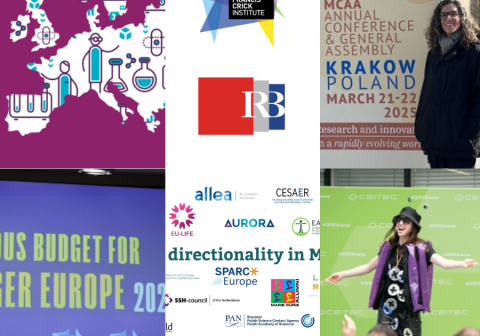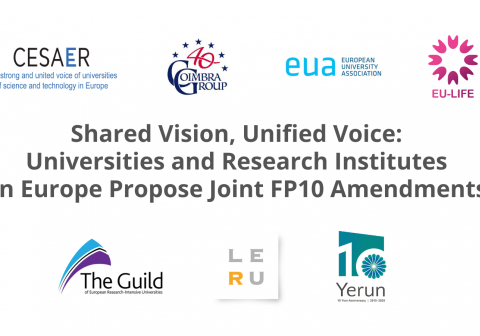The future of European research: 5 key actions for a competitive Europe
Following the publication of the last of the pivotal reports by Letta, Draghi and Heitor Group, the proposed missions of the new College of Commissioners announced by Ursula von der Leyen on 17 September 2024 — and in advance of the European Commission’s proposal for the next political and financial cycle, EU-LIFE launches the statement ‘The future of European research: 5 key actions for a competitive Europe’. It provides the European Commission, the European Council and the Member States with effective actions to ensure that R&I is empowered to contribute to the competitiveness of European economy and to address global challenges.
“An upgrade of Europe’s competitiveness and Research & Innovation strategy is overdue and of great importance. EU-LIFE offers the expertise of its community and leadership to accompany the reform process,” said Giulio Superti-Furga, Chair of EU-LIFE and Scientific Director of CeMM .
5 KEY ACTIONS FOR A COMPETITIVE EUROPE
1. Be ambitious, yet realistic
Aim for longer-term, more impactful outcomes, but this is only realistic by doubling and ring-fencing the investment on R&I.
2. Empower the ecosystem
Invest in rewarding research careers, effective knowledge transfer and cutting-edge research infrastructure. Improve excellence of research institutions in a quality-based, open, equitable, fair and diverse way.
3. Ensure coherence
Give the ERC, EIC and MSCA priority in the upcoming financial cycle and coherently group them in a R&I single umbrella with excellent research infrastructure and clear investment in discovery-driven and collaborative research.
4. Strike the right balance
Balance public and private investments wisely: industrial strategies should not overshadow the critical need to invest public funding in fundamental research. Strong, resilient and impactful excellent research requires a clear bottom-up approach with researchers and innovators in the driving seat.
5. Keep it simple
Plan for an evolution of Horizon Europe that breaks siloes and contributes further to the common effort of making a healthy and prosperous Europe.
“Enhancing collaboration across Europe and supporting research careers is vital for advancing research and innovation, which are key drivers of Europe's global competitiveness. By fostering partnerships among research institutions, businesses, and policymakers, we can tackle global challenges, enhance knowledge transfer, and support a sustainable future for Europe’s citizens,” said Marta Miączyńska, Co-Chair of EU-LIFE and Director of IIMCB.
The full statement is available here.



